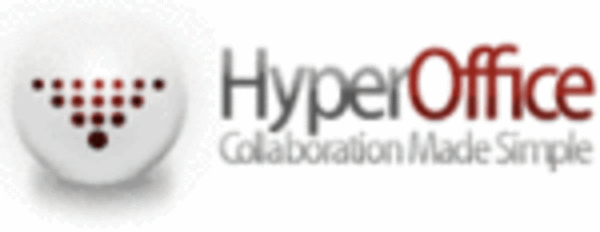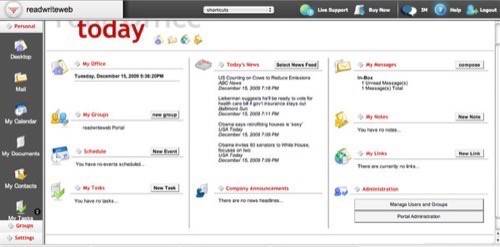Collaboration services targeted at the small business market often seem more like software suites than Web-based services with deep linking capabilities and tag-based environments.

For example, the new offering from HyperOffice focuses on features that are fundamental to small business operations, but lacks the advanced capabilities that we see from a number of Enterprise 2.0 services.
Is this a good thing? Is this due to the domination of document-based systems that have traditionally been such a part of the small business world?
We are torn on this one. We see a number of companies offering services such as real-time collaboration environments. Still, the portal mindset seems to have such a hold on the small business market.
HyperOffice looks like it is providing a service that has value for the small business. But like others we have seen, HyperOffice feels monolithic. It provides the capability to create personal and group environments but extensions to the web are limited. In some respects this may be just the right approach. HyperOffice users may not want the capability to build data mashups and tie into services like Twitter.
The company points out that the market is flooded with Web 2.0 style point tools. The HyperOffice platform is a one-stop shop. This may be smart as the company is targeting Microsoft Sharepoint and Lotus Notes users. A SaaS like HyperOffice may be enticing, perhaps even more so because it has similar functionality to the offerings from the big players in the market.
The HyperOffice UI resembles a Microsoft Office environment. The main page includes icons such as desktop, mail and calendar.

The features are basic but provide clear functionality for the user. HyperOffice has personal and group settings. Groups may share calendar items, and collaborate on documents and other tasks. Additional features include tasks, notes, a wiki and the ability to search Google and Yahoo! from within the application.
Here’s an overview of the service:
Google Apps and Zoho provide a deeper web experience than HyperOffice. But there is definite value here for the company looking for an affordable CRM service.
Pricing starts at $7 per user, per month.





















